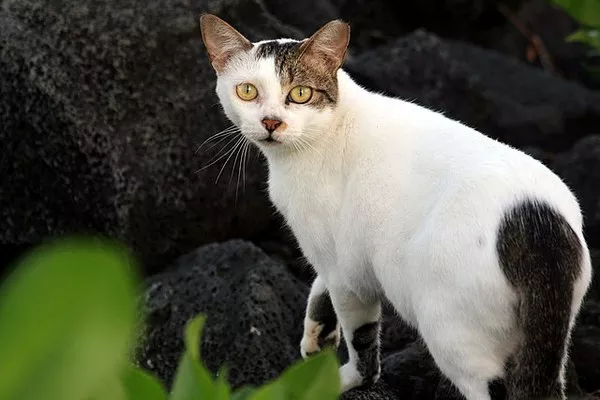Small pet turtles, such as red-eared sliders, painted turtles, and box turtles, make charming and low-maintenance companions for reptile enthusiasts. These miniature reptiles have unique dietary requirements that must be met to ensure their health and longevity. In this comprehensive guide, we will explore what small pet turtles eat, providing you with valuable insights into their nutritional needs and dietary habits.
1. Herbivorous Turtles
Many small pet turtles are primarily herbivorous, meaning their diet consists mainly of plant matter. Herbivorous turtles have specialized digestive systems adapted to process fibrous plant material. Some common herbivorous small pet turtles include:
Red-Eared Slider (Trachemys scripta elegans):
These popular turtles primarily eat aquatic plants, leafy greens, and vegetables.
Painted Turtle (Chrysemys picta):
Painted turtles have a diet that includes aquatic plants, aquatic vegetation, and some terrestrial greens.
Box Turtle (Terrapene spp.):
Box turtles are omnivores, but their diet often includes a substantial amount of leafy greens, fruits, and vegetables.
2. Omnivorous Turtles
While some small pet turtles are herbivorous, others have omnivorous diets, meaning they consume both plant and animal matter. Omnivorous turtles exhibit a more diverse range of dietary preferences. Common omnivorous small pet turtles include:
Musk Turtle (Sternotherus odoratus):
These turtles have a varied diet that includes aquatic plants, insects, crustaceans, and small fish.
Eastern Box Turtle (Terrapene carolina carolina):
Eastern box turtles are opportunistic omnivores, eating a mix of insects, worms, berries, and greens.
Wood Turtle (Glyptemys insculpta):
Wood turtles have an omnivorous diet that includes fruits, vegetables, insects, and small aquatic creatures.
3. Commercial Turtle Pellets
In addition to their natural diet, small pet turtles can be fed commercial turtle pellets. These pellets are formulated to meet the nutritional needs of pet turtles and are available in various brands. When selecting turtle pellets, ensure they are designed for your specific turtle species, whether herbivorous or omnivorous.
4. Live and Frozen Food
For omnivorous turtles, live or frozen prey items can be offered as occasional treats or to stimulate their natural hunting instincts. Suitable live or frozen food options include:
Mealworms
Crickets
Bloodworms
Earthworms
Small fish (guppies, minnows)
5. Calcium and Vitamin Supplements
To support healthy shell and bone development, it’s essential to provide your small pet turtles with calcium and vitamin supplements. These supplements can be dusted onto their food a few times a week. Always follow the recommended dosage instructions and consult with a veterinarian for guidance on supplementation.
6. Freshwater for Drinking and Hydration
Offering access to freshwater is crucial for maintaining your small pet turtle’s hydration. Ensure that they have a clean, shallow bowl of freshwater available at all times. Additionally, some turtles enjoy soaking in water, which can aid in maintaining proper hydration and shell health.
7. Leafy Greens and Vegetables
A significant portion of the diet for herbivorous turtles should consist of leafy greens and vegetables. Suitable options include:
Romaine lettuce
Kale
Collard greens
Mustard greens
Dandelion greens
Zucchini
Carrots (in moderation)
Squash
8. Fruits
For omnivorous turtles and some herbivorous species, fruits can be offered in moderation. Fruits should be treated as occasional treats due to their sugar content. Suitable fruits include:
Berries (strawberries, blueberries)
Apples (remove seeds)
Bananas (in small amounts)
Mango
Papaya
9. Aquatic Plants
Aquatic turtles, such as red-eared sliders, readily consume aquatic plants like water lettuce, water hyacinth, and duckweed. These plants can be an essential part of their diet if they are part of your turtle’s habitat.
10. Dietary Considerations
It’s essential to consider the following factors when determining your small pet turtle’s diet:
Species-specific dietary requirements: Research and understand the specific dietary needs of your turtle’s species to provide appropriate nutrition.
Age: The dietary needs of young turtles may differ from those of adults. Young turtles often require more protein for growth.
Variety: Offer a variety of foods to ensure a balanced diet and prevent dietary deficiencies.
Frequency: Feed your turtle according to its age and activity level. Younger turtles may require daily feeding, while adults may eat every other day.
Monitor their appetite: Pay attention to your turtle’s eating habits. If they suddenly stop eating or show changes in behavior, consult with a veterinarian.
Conclusion
Proper nutrition is essential for the health and well-being of small pet turtles. Whether your turtle is herbivorous or omnivorous, it’s crucial to provide a balanced and varied diet that meets their specific dietary requirements. By understanding their dietary preferences and offering a mix of fresh greens, vegetables, protein sources, and commercial pellets, you can help ensure that your small pet turtle thrives in captivity and enjoys a long and healthy life. Always consult with a veterinarian or reptile specialist for personalized dietary guidance and care recommendations for your specific turtle species.
Recommended reading:

























